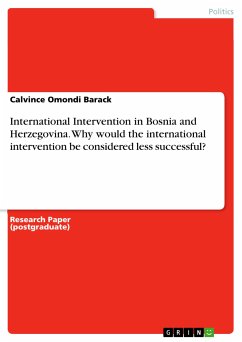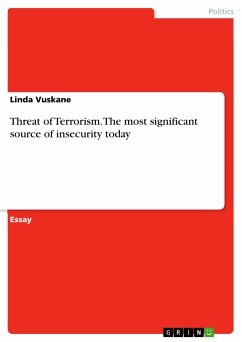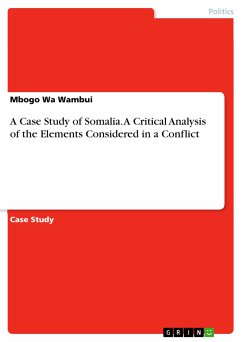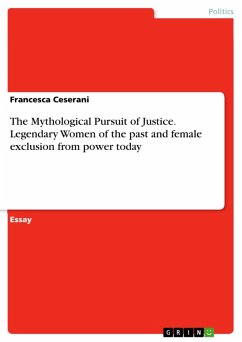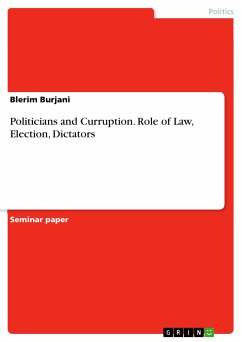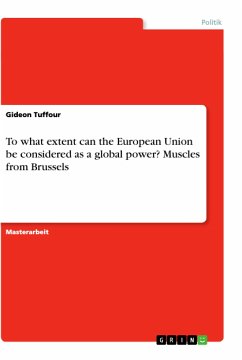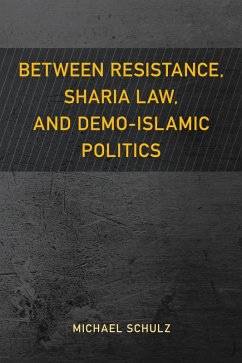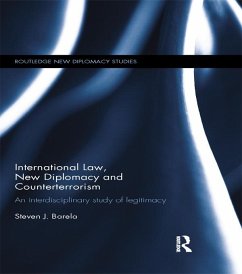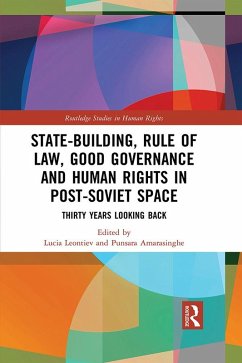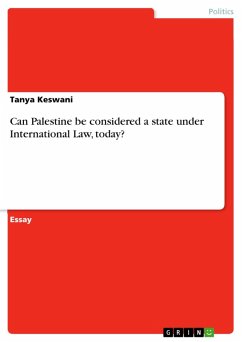
Can Palestine be considered a state under International Law, today? (eBook, PDF)

PAYBACK Punkte
0 °P sammeln!
Essay from the year 2019 in the subject Politics - International Politics - Topic: Public International Law and Human Rights, grade: Distinction, School of Oriental and African Studies, University of London, language: English, abstract: This paper critically assesses whether Palestine is a state under International Law today. It observes the extent to which Palestine meets the traditional criteria of statehood set out in the 1933 Montevideo Convention on Rights and Duties of States. In order to determine whether Palestine is a state we must first identify what makes a 'state' under internation...
Essay from the year 2019 in the subject Politics - International Politics - Topic: Public International Law and Human Rights, grade: Distinction, School of Oriental and African Studies, University of London, language: English, abstract: This paper critically assesses whether Palestine is a state under International Law today. It observes the extent to which Palestine meets the traditional criteria of statehood set out in the 1933 Montevideo Convention on Rights and Duties of States. In order to determine whether Palestine is a state we must first identify what makes a 'state' under international law (IL). The Montevideo Convention on Right and Duties of States (MC) 1933 sets out the traditional criteria for statehood. Apart from the four conditions set out in Article 1, Article 3 and 6 on recognition are equally significant. Palestine statehood is in question because MC has "no mention of putatively relevant matters such as independence, legitimacy, democracy or self-determination". These post-1933 concepts apply to state practice over time, and need to be taken into consideration when assessing Palestine's statehood today. The first two conditions of MC have mostly remained the same. The latter two, when applied to state practice, alter the criteria for a 'state' under IL. This paper will observe to what extent Palestine meets the MC criteria, and how it has altered post-1933. The last condition with reference to Article 3 brings into question the current role recognition plays towards the legality of a state.
Dieser Download kann aus rechtlichen Gründen nur mit Rechnungsadresse in A, B, BG, CY, CZ, D, DK, EW, E, FIN, F, GR, HR, H, IRL, I, LT, L, LR, M, NL, PL, P, R, S, SLO, SK ausgeliefert werden.




